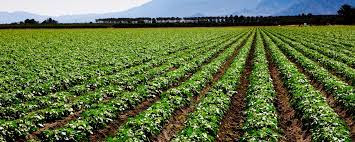Sustainable agricultural methods are more important than ever in an age characterized by environmental concerns and a growing world population. Traditional agricultural practices frequently result in biodiversity loss, water pollution, and soil deterioration. A transition towards environmentally responsible and food-secure farming methods, however, offers a way forward. You will examine a few crucial techniques, as per BenedictT palen Jr, that are setting the standard for sustainable farming in this post.
Crop Rotation
A tried-and-true technique called crop
rotation is growing several crops in the same field over the course of several
seasons or years. This method organically increases soil fertility while
preventing soil depletion and insect buildup. The nutrients left behind from
the previous crop can be used by crops with varied nutritional requirements
when they are alternated. Crop rotation also interferes with the life cycles of
diseases and pests, lowering the demand for chemical pesticides.
No-Till Farming
A conservation technique that lessens soil
disturbance is no-till farming. Furrowing and plowing are commonplace
strategies utilized in customary cultivating to prepare the dirt for planting.
These activities might bring about expanded carbon dioxide outflows, soil
disintegration, and a deficiency of natural soil matter. In no-till
cultivating, crops are established straight onto the outer layer of the dirt
with next to no plowing. This gets a good deal on fuel and work costs while
moderating soil and bringing down ozone-depleting substance discharges.
Organic Farming
Natural cultivating is an extensive
procedure that accentuates utilizing normal sources of info and methods to
protect soil wellbeing and decrease ecological effects. Hereditarily changed
organic entities (GMOs) and modern pesticides and herbicides are not utilized
on natural homesteads. In order to improve soil fertility and manage pests and
diseases, they instead rely on crop rotation, cover crops, and compost. Organic
farming also supports biodiversity by supplying habitat for helpful insects and
wildlife.
Agroforestry
A more diversified and sustainable farming
system is produced through agroforestry, which combines trees and shrubs with
agricultural products. Trees offer shade, which helps lessen the impact of high
temperatures on cattle and crops. Additionally, they enhance water retention
and stop soil erosion. By producing lumber, fruit, and nuts, agroforestry
systems may increase biodiversity, trap carbon, and offer new revenue streams.
Precision Agriculture
Precision agriculture uses technology such
as GPS, sensors, and data analytics to optimize farming practices. Farmers can
precisely apply inputs like water, fertilizer, and pesticides only where and
when they are needed, reducing waste and environmental impact. This data-driven
approach helps increase crop yields while minimizing resource use and
environmental harm.
Conclusion

No comments:
Post a Comment